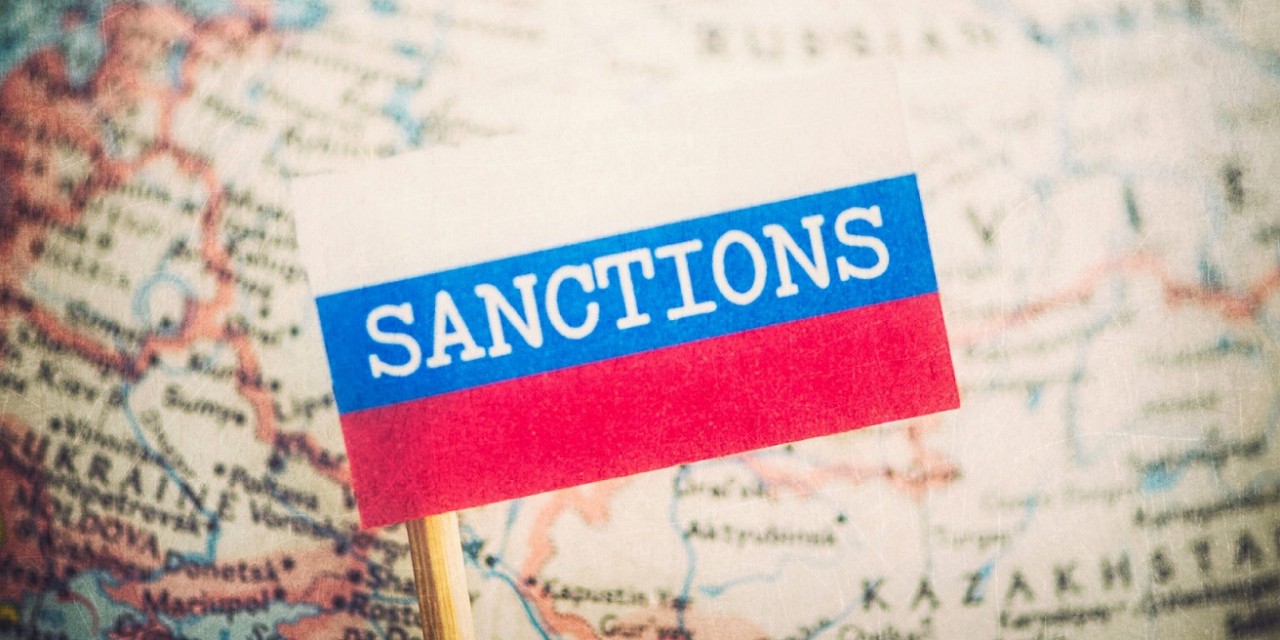 |
| Sanctions against Russia: The West's decision to 'break up' and Moscow's response? (Source: Visegradinsigh) |
EU sanctions against Russia will increase over time and will have a lasting impact on the country's economy, Bloomberg has just published the above information after referring to the relevant Report of the European Commission (EC).
EC calculation?
The EC report notes that the sanctions have significantly damaged Russia's industrial and technological potential. These impacts will be amplified over time, as the measures have a structural and long-term impact on Russia's budget, financial markets, foreign investment, as well as its industrial and technological base.
According to statistics from the above document, the impact of EU sanctions against Moscow has reduced about 91 billion EUR of imports from Russia and 48 billion EUR of exports of the Union.
The EC estimates that in 2023, nearly a third of Russia's federal budget will be spent on defense and internal security. Meanwhile, exports from the EU and imports from Russia will fall by more than 50% compared to 2021. This will inevitably cause a particularly rapid contraction of manufacturing industries that rely on Russian technology.
Evidence is that the EU's export of dual-use, advanced technology goods has increased very rapidly, increasing by 78% in 2022 compared to the period (2019-2021).
On the European side, thanks to measures to mitigate the negative impact on EU members, some serious problems have been averted, but they are still felt in some areas, mainly due to Russian countermeasures and the consequences of the Russia-Ukraine military conflict, which have led to high prices.
At the same time, Moscow rakes in significant revenue and is still able to obtain some sanctioned goods, as well as other alternative technologies, from third countries, including China, Kazakhstan, Türkiye and the UAE, the report said.
For example, Russia's oil and gas revenues are falling despite sanctions evasion.
They are still 'exploding' in Russia
However, according to Ukrinform , Mondelez, Mars Inc. and PepsiCo Inc. had "explosive sales" in Russia in 2022 after announcing that they would reduce sales of their products in the country.
The media cited data from Russia's tax service, according to which Mondelez Rus' sales increased 38% last year to $1.1 billion. Thus, compared to 2021, the company more than doubled its total profit.
In its annual report, leading US food company Mondelez announced that its profits had increased sharply due to prices, production growth and the suspension of advertising activities, adding that the Russian market accounted for 4% of the company's revenue.
Last year, Mars Inc. recorded a 14% increase in sales in the Russian market (177 billion rubles), while profits increased by almost 60% to 27 billion rubles.
Meanwhile, the world's leading food and beverage company PepsiCo's revenue in Russia increased 16% and profits quadrupled. According to the manufacturer, sales in Russia will account for 5% of net income by 2022, up from 4% a year earlier.
Thus, the US companies themselves have not left the Russian market. All three companies are also not subject to sanctions, saying they only sell “essential” products, Bloomberg noted.
However, in September 2022, PepsiCo CEO Ramon Laguarta announced that it would stop selling international brands, including 7Up and Pepsi, in Russia. Mondelez also announced that it would reduce operations, suspend new investments, product launches and advertising spending in Russian media. Mars Inc. Wrigley global president Andrew Clarke also said that they were reducing their operations in Russia.
Meanwhile, other companies have announced that they will postpone their plans to leave Russia, such as Bank International...
The latest statistical report by the Kiev School of Economics (KSE) and B4Ukraine shows that American and European multinational companies in Russia are continuing to pay "huge" taxes in this market in 2022. Billions of dollars in taxes are said to be indirectly "funding" Moscow.
By some estimates, maintaining its military campaign in Ukraine is costing Russia at least $1 billion a day, a huge strain on its finances, while falling oil and gas prices and sanctions on the energy sector are hurting the country’s main source of income.
...where does Moscow's billion dollar revenue come from?
However, the KSE Report points out that, of the 1,387 Western companies that had subsidiaries in Russia at the start of the Russia-Ukraine conflict on February 24, 2022, only 241 (17%) have completely left Russia. Meanwhile, those that have not left the market paid $177.2 billion in taxes last year.
In February, the KSE released an incomplete business report analyzing the exits from Russia, which found that more than half (56%) of international companies operating in Russia at the start of the conflict continued to do business there. The report also found that little had changed even three months after the conflict began, with 56% of the companies monitored by the KSE still reporting they were staying in Russia.
In 2022, global corporations, including those that have announced their withdrawal from Russia, paid a total of $3.5 billion in taxes on profits in the country. The KSE report said that this is just the tip of the iceberg and is likely to be an underestimate of the total tax bill.
The report also said that foreign companies with branches in Russia also have to pay a range of other taxes, including income tax on employee wages, social insurance contributions and value-added tax.
Companies headquartered in G7 and EU countries are the highest profit taxpayers in Russia in 2022, with 16 of the 20 largest contributors being multinational companies.
According to the report, US companies are the top revenue earners in Russia and are the biggest contributors to the country's budget through profit taxes, amounting to $712 million in 2022, followed by German companies with $402 million. Meanwhile, companies based in EU member states have already paid $594 million in profit taxes.
Source


![[Photo] The 1st Congress of Phu Tho Provincial Party Committee, term 2025-2030](https://vphoto.vietnam.vn/thumb/1200x675/vietnam/resource/IMAGE/2025/9/30/1507da06216649bba8a1ce6251816820)

![[Photo] General Secretary To Lam receives US Ambassador to Vietnam Marc Knapper](https://vphoto.vietnam.vn/thumb/1200x675/vietnam/resource/IMAGE/2025/9/29/c8fd0761aa184da7814aee57d87c49b3)
![[Photo] General Secretary To Lam, Secretary of the Central Military Commission attends the 12th Party Congress of the Army](https://vphoto.vietnam.vn/thumb/1200x675/vietnam/resource/IMAGE/2025/9/30/9b63aaa37ddb472ead84e3870a8ae825)
![[Photo] Solemn opening of the 12th Military Party Congress for the 2025-2030 term](https://vphoto.vietnam.vn/thumb/1200x675/vietnam/resource/IMAGE/2025/9/30/2cd383b3130d41a1a4b5ace0d5eb989d)

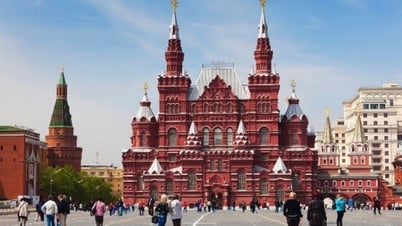



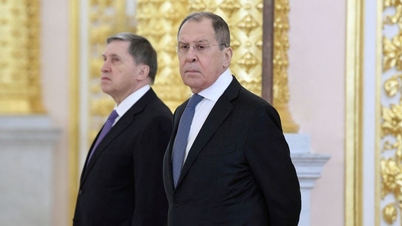


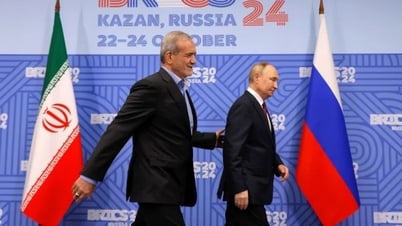





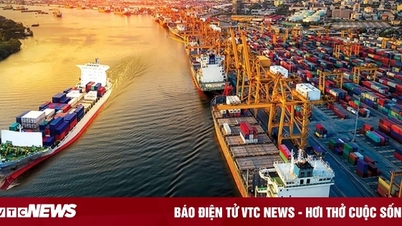













![[Photo] General Secretary To Lam attends the ceremony to celebrate the 80th anniversary of the post and telecommunications sector and the 66th anniversary of the science and technology sector.](https://vphoto.vietnam.vn/thumb/1200x675/vietnam/resource/IMAGE/2025/9/29/8e86b39b8fe44121a2b14a031f4cef46)

























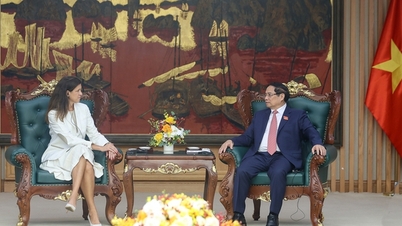

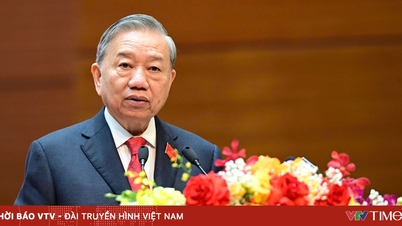




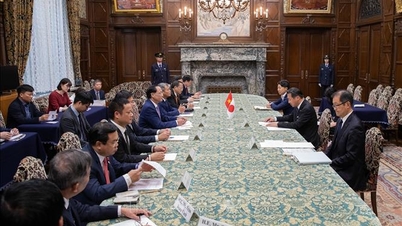


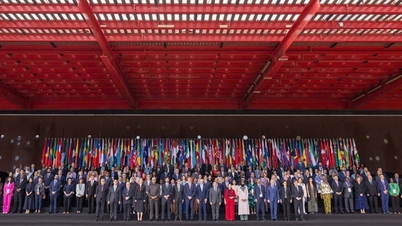





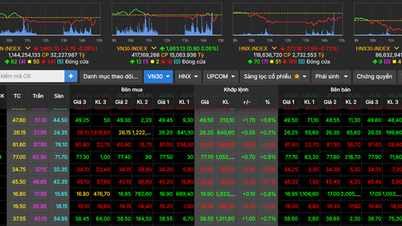

























Comment (0)